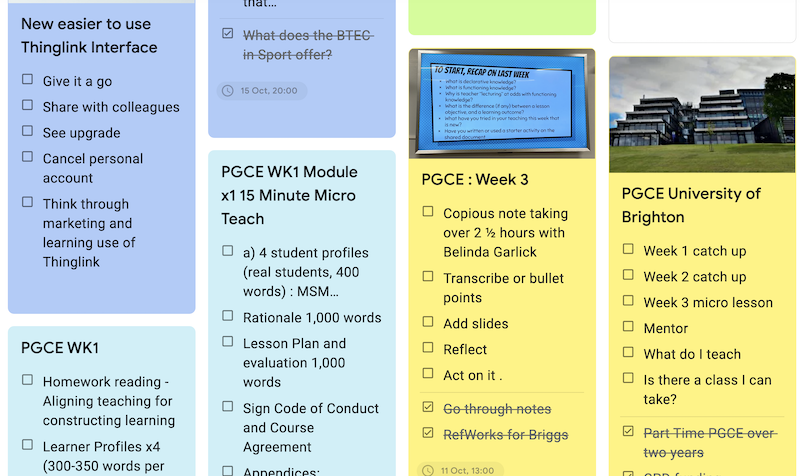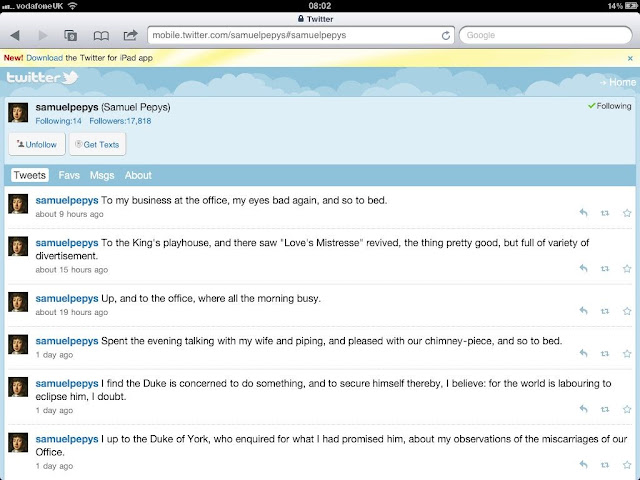Blogging works – you too should keep a diary.
Don't think its anything new, this one dates to the 16th century. Lady Anne Clifford would know how to build a website and keep a blog. She did.

You can always go private.
Edit, then publish later. Or password protect so only a few get to read.
To give you confidence.
To become emboldened.
Start small. 50 years before Twitter there was the Five Year Diary. This is mine. I think the entries here are around 140 character.

‘Maketh up a quote at ye beginning of thy book; it will make people think thou art clever.’
Christopher Marlowe ‘The Obscure Tragedie’ Act II, Scene ii.
The following comes from a seminal book on diary keeping by Tristine Rainer.
Here are some key thoughts:
Some of this thinking can be brought up to date in the context of keeping a diary online; the essential principals remain the same.
A dairy is many things:
‘Everything and anything goes. You cannot do it wrong. There are no mistakes. At any time you can change your point of view, your style, your book, the pen you write with, the direction you write on the pages, the language in which you write, the subjects you include, or the audience you write to. You can misspell, write ungrammatically, enter incorrect dates, exaggerate, curse, pray, write poetically, eloquently, angrily, lovingly. You can past in photographs, newspaper clippings, cancelled checks, letters, quotes, drawings, doodles, dried flowers, business cards, or labels. You can write on lined paper or blank paper, violet paper or yellow, expensive bond or newsprint.’
Tristine Rainer, ‘The New Diary’ 1976.
Is this so different to blogging 25 years on?
Not at all. I go with the view of Reconstruction 6.4 that a blog is like paper, as versatile, but online.
Think about. I have and academic 'papers' have been written on the theme.
‘Flow, spontaneity and intuition are the key words. You don’t have to plan what you are going to do. You discover what you have done once you have set it down.’Tristine Rainer.
Keep it all in one place
‘When the dreams like next to the fantasies, and political thoughts next to personal complaints, they all seem to learn from each other.’
- This works for blogging:
- Write Spontaneously
- Write quickly
- This is so that you don’t know what will come next.
- How the unexpected can happen.
- Surprise yourself.
- Write Honestly
Be open about what you really feel.
Few diaries actually lie to themselves in a dairy, but many out of shyness with themselves avoid writing about the most intimate aspects of a situation.
Write Deeply
Anais Nin, disappointed with her childhood diaries, developed the practice of sitting quietly for a few minutes before beginning to write. She would close her eyes and allow the most important incident or feeling of the day or of the period of time since she last wrote to surface in her mind.
That incident or feeling became her first sentence.
Write Correctly
- Expressive language is not a science.
- There are no rules.
- You are writing for yourself, so self-expression is the key.
- Test the range of your natural voice – it will develop.
- Errors are part of the form of the diary, as they are part of life.
Blogging for Dummies claims this thinking for itself, treating the ideas of others like a tumble-dryer of ideas from which you can pick willy-nilly.
Choose your audience Your best audience is your future self.
In ten years time you won’t remember the situation unless you capture all its sensual vitality now.
My frustration is with the new comers jumping on the blogging bandwagon professing to know all about social media (including blogging). They don't unless they have done it; I have. I do.
Value contradictions
In time they will develop towards a larger truth; leave them in.
‘Some diarists find when they go several weeks without writing they begin to feel off balance and take it as a signal that they are avoiding the inner self.’
Those of us who keep a diary regularly are stuck with it; whether it appears online, and which bits of appear online is another matter.
‘We taught the diary as an exercise in creative will; as an exercise in synthesis; as a means to create a world according to our wishes, not those of others; as a means of creating the self, of giving birth to ourselves.’
Anais Nin, December 1976.
There’s more to follow from Tristine Rainer on basic diary devices and special techniques.
The Marlowe quote is John O’Farrel’s invention and appears in ‘I blame the scapegoats.’ A diary cannot be ghost written, I’m sure some blogs.
A corporate blog isn'nt a blog it's a online brochure.




